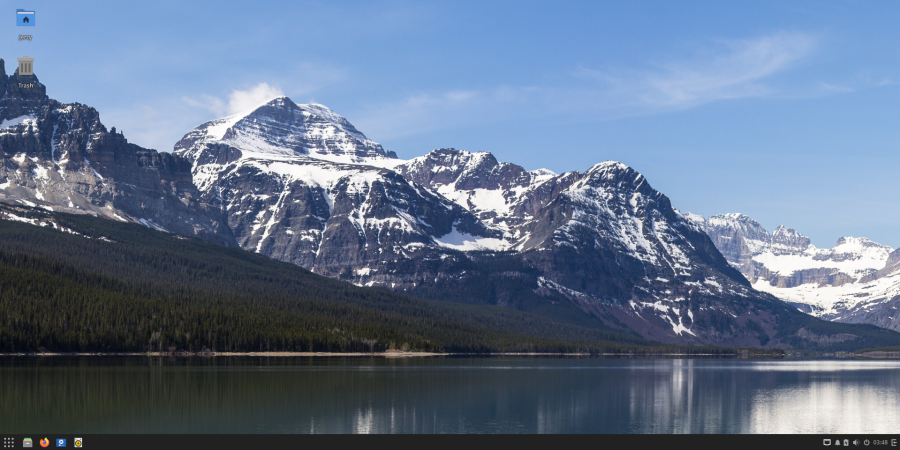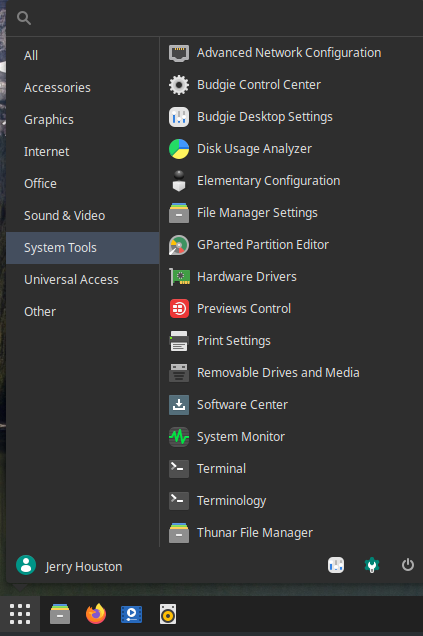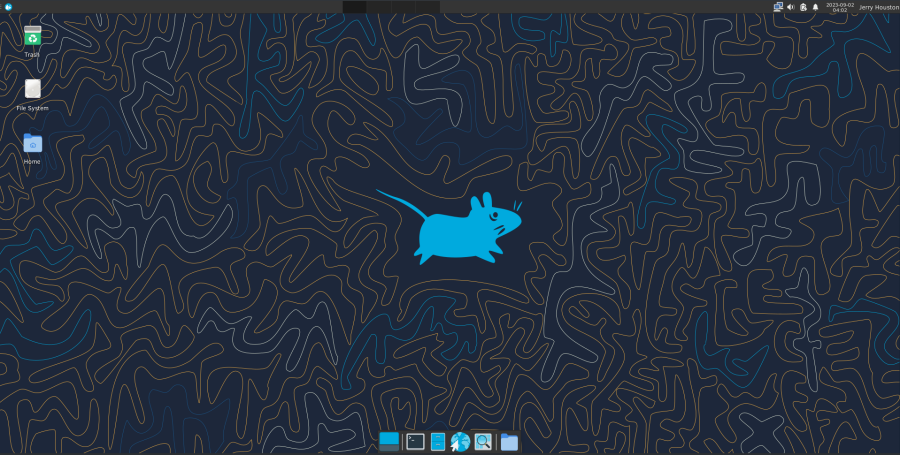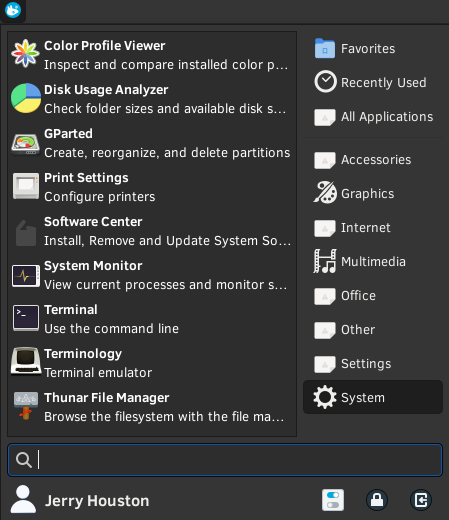brent actually apples and apples, all this DE stuff.
At the risk of upsetting you, but for the possible benefit of others who may be reading this thread, I want to make one last post on this subject. To check whether I ended up with two sets of default applications, I re-installed the Budgie desktop on my Xfce VM. Like so ...

First, I'm going to boot into a Budgie session.

Here's the Budgie System menu.

Next, I'll boot into an Xfce session.

And here's the Xfce system menu. Note that I've replaced the original, which was crap, with the Whisker menu.

The first clue that you're absolutely right is that the Thunar file manager shows up in both menus. It's in the Budgie menu because it was already installed when this was a strictly Xfce VM. Nemo is also present, although Budgie puts that in the Accessories menu, for some unknown reason. And by exploring the menus a bit, I can see that the Xfce terminal is also available in the Budgie menu, as is the Budgie terminal, of course.
So, right here in front of everyone who may be reading this, I'll admit that I'm surprised, but not much. The software engineer in me can see why it would be hard to segregate these applications into their own respective menus, but I thought there was a chance that -- since two different menus were installed by the two DEs -- that might have been done. I now realize that both menus are getting their information from the same source, the same file system. It would probably take an extraordinary coding effort -- far more than it's worth -- to separate each DEs default apps into just that DE's menu.
But there's at least a second question that's answered by this experiment, and in the interest of full disclosure, I feel I should mention that here, too. Would it even be a good idea to make only Budgie defaults available in a Budgie session and only Xfce defaults available in an Xfce session? I'm not sure that would be a good idea at all. Having both sets of defaults available in either session provides the user with an important set of options.
For example, some may love Nemo and hate Thunar, or vice versa. Others might love the Xfce teminal, and hate the GNOME terminal that Budgie provides. Some might want to keep both versions of some of the default programs, preferring one of them in some situations, and the other for other situations. Again, I'm talking about choice, something that Linux is all about. And a brief session with eopkg rm would quickly get rid of those duplicates that one has decided never to use. (Actually, on a daily driver laptop, I'd remove both DE's default terminals, because I'd just want to useTerminology for both. It's that much better.)
So, in the end we're both right. You're right that one can end up with some duplicate default applications by installing two DEs for the same system. And I'm right in that it's your system, and your choice. Having both DEs available in this machine caused no nausia for me, and I rather appreciate the opportunity to try out two versions of a few apps and decide which one works best for me. I can then easily remove the one I don't care for, and never see it again.
Unlike those four other distros where you may have experimented with this, Solus is carefully curated, and doesn't fill a disk drive with tons of applications by default. So there are probably far fewer duplicates than you've dealt with elsewhere. We'll have to agree to disagree about whether it's easier to interrupt a boot process to select the OS version to launch or to pick a session at boot time, but as I keep saying, that's a matter of choice, too. I prefer doing it all without requiring a second disk in the computer, or the complication of separate partitions on one big disk (been there, done that, hated it), but then, that's just me.
Since I don't actually use Budgie or Xfce (or MATE or GNOME, for that matter) anywhere except in a VM, this isn't a big issue for me. I use KDE Plasma on all the hardware here, and there's nothing about any of the other DEs that I prefer to what Plasma provides. But someone running a GNOME-based DE will have such a choice (there's that word again, choice). And that's as it should be, but without knowing what options exist, there is no choice. That's why I've gone to the trouble to conduct this experiment, and document the results. Readers, including you, Brent, can make up their own minds. Their systems, their choice.